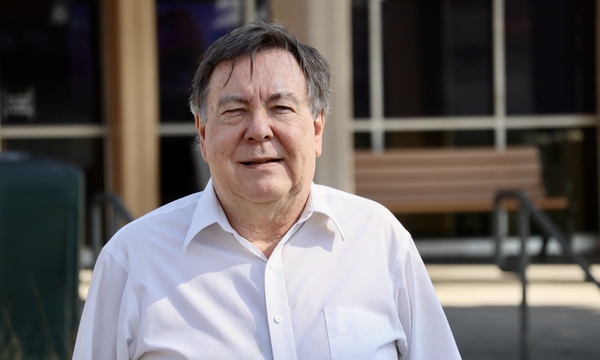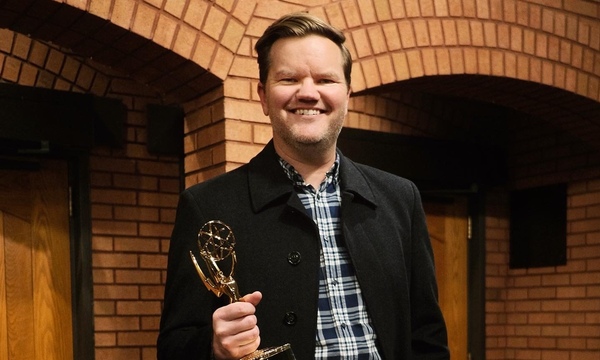Below are FAQs about Biola's Institutional Diversity Strategic Plan.
_________________
Why does Biola need an Institutional Diversity Strategic Plan?
Historically, the topic of diversity has been a challenging one that has polarized various organizations, including college campuses. At Biola, we believe that with a clearly articulated biblical vision regarding diversity, God’s vision for unity will ultimately be brought to our campus community. While some approaches to diversity focus on the attitude of tolerance, as Christians we affirm our calling to go beyond this to practice sacrificial Christ-like love. This love is the foundation for unity amidst diversity within the Kingdom community.
When we refer to diversity, we don’t simply mean demographic diversity but also the diversity of thought within our community. It is well documented that diversity helps colleges achieve academic and institutional excellence — it will help Biola achieve our mission of “equipping men and women in mind and character to impact the world for the Lord Jesus Christ.” In order to leverage diversity to achieve our mission, “academic leaders need to become simultaneously more strategic and proactive in their approach to designing and implementing diversity policies and programs.” Hence, the creation of an Institutional Diversity Strategic Plan. In order to be successful, the plan must be concise, have the capacity to anticipate change, and the workload must be shared among champions across the university.
The purpose of the plan is simple: to create “a culture of Christ-like love which is seen through mutually edifying interpersonal relationships and equitable institutional policies that allow for a thriving intercultural community.” This will ultimately be a counter-cultural witness to the world.
Who created the Institutional Diversity Strategic Plan?
Tamra Malone, Chief Diversity Officer, drafted the plan from multiple previous versions informed by other university strategic plans, campus climate studies, and peer reviews. During Spring 2019 the draft was vetted by the Institutional Diversity Strategic Plan Task Force, consisting of 25 faculty, staff and students. These campus leaders and stakeholders spent a total of 1040 collective hours exploring historical accounts and best practices to inform their prioritization of the plan. The task force then presented their top recommendations for the next five years to the Advisory Board, consisting of the Cabinet, Senior Advisor to the President for University Mission, and the Diversity & Inclusion (D&I) Team. The Cabinet formally approved the plan in December 2019. During the Spring, 2020 the Diversity Strategic Plan Assessment Plan was reviewed by D&I leaders to confirm tangible benchmarks for progress. We were originally planning to formally launch the plan to the community in spring 2020, but COVID-19 interrupted those plans and caused us to delay until Fall 2020.
Will I be able to read the plan?
The Institutional Diversity Strategic Plan is very comprehensive: it contains 4 goals, 16 initiatives, 33 strategies, and is 37 pages. Senior leaders throughout the university will receive copies of their responsibilities and strategies this summer to champion their initiative. An executive summary of the plan will be posted online for all to read.
While work on the plan has already begun across many areas of the institution, we will launch the Institutional Diversity Strategic Plan in Fall 2020 since we had to delay it due to COVID-19. During April 2020 a virtual event on the University Progress on Diversity & Inclusion was held to inform the campus of the purpose of the plan and initiatives that are underway.
What progress is already occurring on the plan?
At Biola University everything we do is rooted in biblical truth and wisdom, including diversity and inclusion work. The D&I team and Talbot leadership worked for a year to create Unity Amidst Diversity: Theological Statement on Diversity, which details the biblical foundations that underpin the work of the D&I Division. The statement was unanimously approved by the Board of Trustees in January 2019. Additionally, in a brief video, university leadership explain why diversity is a value for Biola from biblical, institutional health, student demographic, and missional perspectives.
The D&I team has drafted key definitions and additional resources to help community members understand and engage with Diversity. Glen Kinoshita, Director of Imago Dei and Faculty Development, is finalizing an Online Module as a resource for Faculty Development.
It is important that we equip employees to serve our diverse student population and to work on diverse teams. Human Resources revised employee onboarding in early 2019 and diversity and inclusion curriculum was formalized and included as a key component of training for new staff, and respectively Faculty Advancement included D&I professional development for new faculty. In addition, Symphony, a 6-week professional development learning track for current employees designed to deepen intercultural knowledge, skills, and attitudes launched in September 2019 and is offered every semester. Reading Groups are facilitated by the D&I Team and D&I Partners at least once a year. For more information on opportunities for employees, visit the Intercultural Education webpage.
Engaging in diversity of thought is a critical component to enhancing the learning environment. In order to accomplish this, it is critical that our curriculum and pedagogy align and support opportunities to engage diverse perspectives in the classroom. Our regional accreditation body, WASC, has asked that we articulate a definition of diversity of thought for our context and is holding us accountable to make progress. Deborah Taylor, Provost and Senior Vice President, is championing these efforts through the development of faculty advocates who will provide pedagogical and curricular consulting for respective disciplines. Additionally, she plans to create faculty-specific learning tracks similar to Symphony for professional development.
“A diverse workforce and inclusive environment increases productivity, creates new ideas, allows us to perform on a higher level and enhances our ability to continue to excel in an increasingly complex, competitive and diverse world.” Mike Pierce, Vice President of University Operations and Finance, is overseeing an Inclusive Hiring Initiative which, under the leadership of Human Resources Sr. Director Dave Grant, will employ best, fair and equitable practices to broaden and diversify our applicant pool which will increase our ability to attract the most highly qualified candidates.
From an enrollment perspective, Biola wants the student body to reflect our surrounding cities and reflect the breadth and richness of the kingdom of God. The University Enrollment, Marketing and Communications (EMC) Division takes seriously their roles to be culturally relevant in their recruiting efforts, in our marketing, in our communication. Lee Wilhite, Vice President of EMC, is chairing a task force for Biola to become a Hispanic Serving Institution, as currently 21% of Biola’s traditional undergraduate population is Hispanic/Latino. Initiatives include working to strengthen Biola’s relations to the local Latino community, addressing ways to increase the Latino transfer rate to Biola, and fostering a positive co-curricular experience for Latino students.
The vision of Student Development is that students would be different when they graduate than when they came in – and part of this includes becoming more culturally aware and neighbor-loving. Taking a comprehensive approach, Andre Stephens, Vice President of Student Development, is integrating Unity Amidst Diversity: Theological Statement on Diversity (UAD) into multiple aspects of Student Development. This includes student leadership training as well as the co-curricular programming, coaching and mentoring of students.
Strategic initiatives to advance diversity cannot happen without financial investments and commitments from the institution’s donor base. In order to fundraise to support the Institutional Diversity Strategic Plan, Adam Morris, Vice President of Transformation and Chief Advancement Officer, is finalizing a Case for Diversity to share with university donors. In light of the COVID-19 crisis, the Advancement office raised more than $120,000 to support the basic needs of students.
What’s the accountability for the plan? How will Biola know if we are making progress?
Cabinet members and senior leaders in their areas have been assigned to be champions over designated portions of the plan. The Chief Diversity Officer meets with these leaders regularly to ensure progress is being made. Additionally, assessment is vital to ensure that we hold ourselves accountable to making progress. An assessment plan to measure our progress and hold us accountable was drafted during Fall 2019 by the Assessment of the Diversity Strategic Plan Working Group, composed of ten faculty and staff representatives. The D&I team is currently finalizing the assessment plan and gathering baseline data. Progress on the Strategic Plan will be communicated annually to the Biola community.
What can we look forward to over the next couple of years?
Below is a list of some of the actions we will be taking in the next couple of years.
- Identify events and opportunities for training and education of students on diversity and inclusion throughout the year, in and out of the classroom.
- Provide professional development opportunities to equip faculty and staff for the increasingly diverse student body attending the university.
- Increase the integration of diversity of thought within the curriculum through works of scholars from diverse backgrounds.
- Host multiple all-community gatherings led by Biola’s President engaging in topics that help advance the theological understanding and practical implications of pursuing diversity at Biola.
- Provide multiple opportunities to practice diversity and inclusion within the Biola community.
- Expand Biola’s FirstGen program to serve all incoming and current FirstGen students.
- Work toward enhancing the SCORR conference to become a national conference.
- Engage with parents and alumni on different diversity initiatives.
- Collaborate with leaders to ensure major university events and student programming better reflect the diverse cultures represented in our student body.
- Fundraise money specifically geared toward diversity and inclusion initiatives at Biola.
- Ensure diversity is a lived institutional value evident in our practices and policies throughout the university.
Biola University is a leading Christ-centered university in Southern California that offers a premier, nationally ranked education and has been named one of the nation's “up and coming” universities by U.S. News & World Report four times in five years. Founded in 1908, Biola is committed to the mission of biblically centered education, scholarship and service — equipping men and women in mind and character to impact the world for the Lord Jesus Christ. With more than 6,300 students at its Los Angeles-area campus and around the world, the university offers more than 150 academic programs through its nine schools, ranging from the B.A. to the Ph.D. For more information, visit www.biola.edu.
 Biola University
Biola University
.jpg)

.jpg)